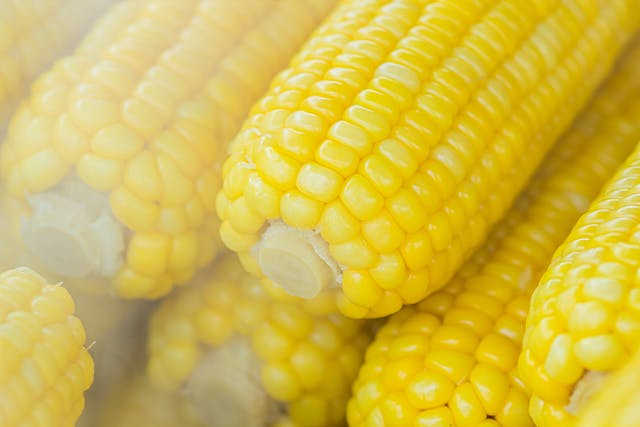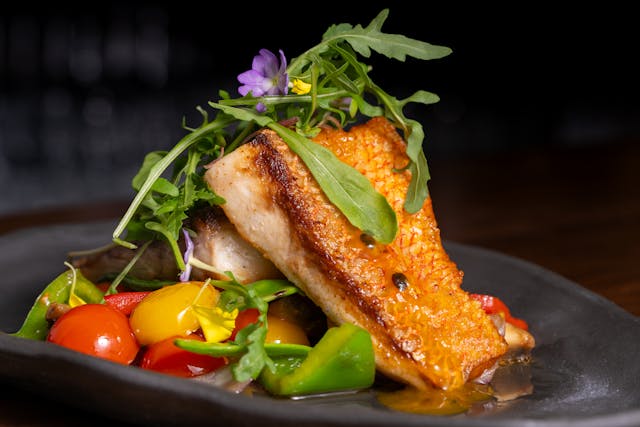Corn is one of the most versatile and widely consumed crops in the world, but it has long been a topic of debate when it comes to classification. Is corn a grain, a vegetable, a fruit, or even a berry? And what about its nutritional profile—does it qualify as a carbohydrate, a starch, or something else entirely? These questions might seem simple, but the answers reveal the fascinating complexity of this beloved food.
Is Corn a Grain?
Yes, corn is classified as a grain when harvested in its mature, dry form. Botanically, grains are the seeds of grasses, and corn fits this definition perfectly as it belongs to the grass family Poaceae. The corn kernel—the part we eat—is technically a seed, making corn a cereal grain, much like wheat, rice, and oats.
In its mature state, corn is used to produce products like cornmeal, popcorn, and corn flour, all of which are staples in many cuisines.
Is Corn a Vegetable or a Carbohydrate?
Corn is both a vegetable and a carbohydrate, depending on how it is harvested and consumed.
- When is corn a vegetable? Corn is considered a vegetable when eaten fresh, such as sweet corn on the cob. In this form, it is harvested while immature, before the kernels dry out.
- Is corn a carbohydrate? Yes, corn is a carbohydrate because its kernels are rich in starch, a type of carbohydrate that provides energy. Like potatoes, corn is a starchy vegetable, meaning it has a higher carbohydrate content than non-starchy vegetables like spinach or broccoli.
Is Corn a Vegetable or a Fruit?
Corn can be classified as a fruit from a botanical standpoint. Why? Because fruits are defined as the part of a plant that develops from the flower and contains seeds. Corn kernels grow from the plant’s flower and house seeds, fitting the technical definition of fruit.
However, corn is commonly referred to as a vegetable in culinary terms when consumed fresh. This dual classification adds to the confusion but highlights its versatility in cooking and nutrition.
Why Is Corn No Longer Considered a Vegetable?
While corn is still considered a vegetable when eaten fresh, such as in sweet corn form, its botanical classification as a grain or fruit is becoming more widely recognized. This shift in understanding reflects a growing awareness of corn’s various uses and forms. For example:
- Cornmeal and popcorn are treated as grains.
- Sweet corn is treated as a starchy vegetable.
- Botanists classify corn kernels as fruit.
The context of how corn is used and studied often determines its classification.
Is Corn Good for You?
Yes, corn is good for you, but its health benefits depend on how it is prepared and consumed. Corn is a nutrient-rich food that provides:
- Vitamins and minerals: Corn is a source of B vitamins, magnesium, and potassium.
- Fiber: Whole corn contains dietary fiber, which supports digestive health.
- Antioxidants: Yellow corn is rich in carotenoids like lutein and zeaxanthin, which promote eye health.
- Energy: Corn’s natural starch content makes it an excellent source of energy.
However, processed corn products like corn syrup or corn chips are often less nutritious due to added sugars, salts, or unhealthy fats.
Is Corn a Berry?
Surprisingly, yes! Botanically speaking, corn can be classified as a type of berry called a caryopsis. A caryopsis is a one-seeded fruit where the seed coat and fruit wall are fused, as is the case with corn kernels. This unique structure places corn in the same category as other grains like wheat and rice.
Is Corn a Starch?
Yes, corn is considered a starch due to its high carbohydrate content. The starch in corn provides a quick source of energy, which is why it is a staple food in many cultures. Corn can be a valuable part of a balanced diet, especially when consumed in whole form. Examples of starchy corn products include:
- Corn tortillas
- Cornmeal
- Polenta
Final Thoughts: Corn’s Multifaceted Identity
Corn is a grain, a vegetable, a fruit, a starch, and even a berry, depending on the context. Its versatility makes it a cornerstone of cuisines around the world. Whether you’re eating it as sweet corn on the cob, popcorn at the movies, or as part of a cornbread recipe, corn provides a rich array of nutrients and culinary possibilities.
So, is corn good for you? Absolutely, when consumed in its natural, minimally processed forms. Its complex identity as a food is just another reason to appreciate this staple crop.


